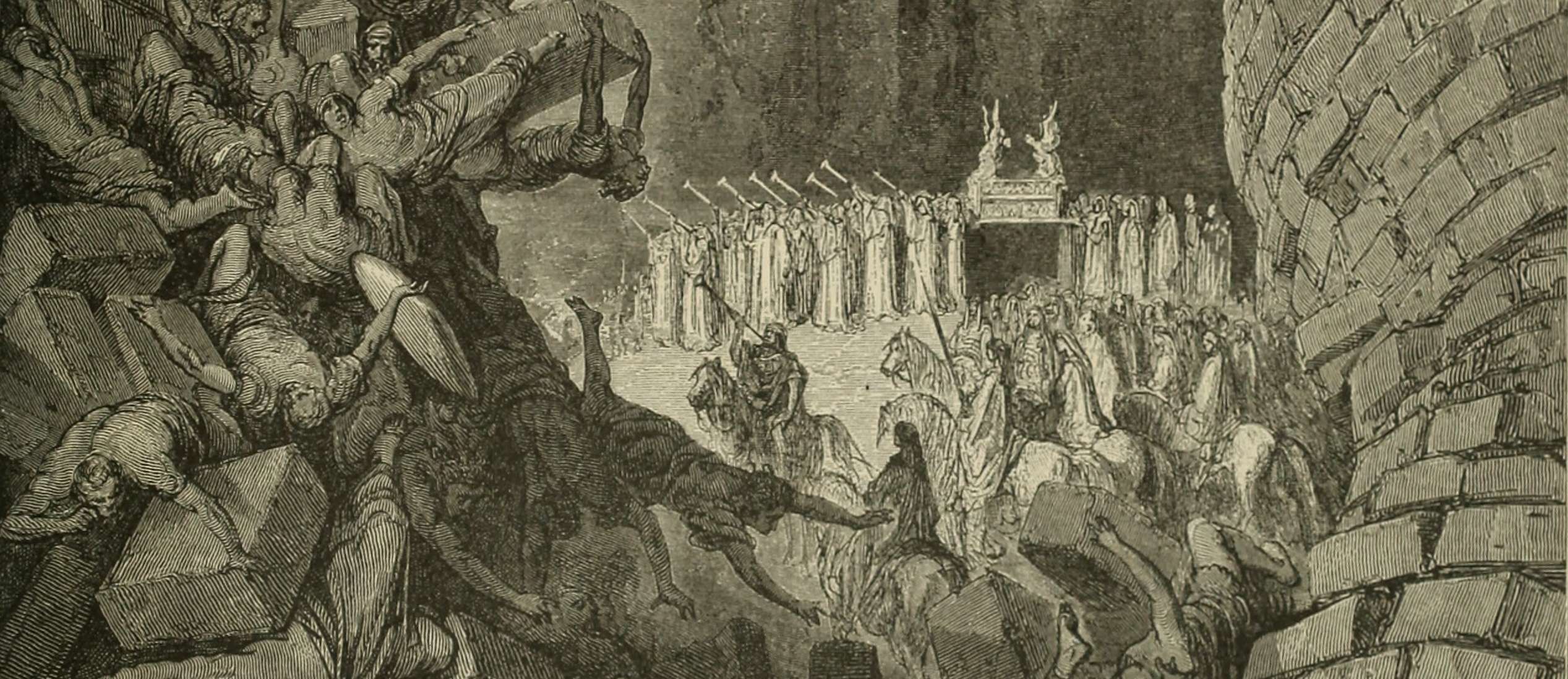The Conquest of Paradise
For 20 years or so, the Crusaders have emerged to the dramatic sounds of the late Vangelis’ theme tune to the Ridley Scott movie 1492: The Conquest of Paradise. In keeping with the American identification of itself as the Promised Land, the movie is about Christopher Colombus’ arrival in America.
The original reference is to the Israelite conquest of Canaan, which occupies the book of Joshua.
The colonisation of America makes most Americans uncomfortable today; the colonisation of Canaan even more so. How can a good God tolerate war, let alone command one? And more than that. The book of Joshua makes very clear that Israel’s role was essentially that of a support act. The first city of Canaan to fall was the city of Jericho; Israel’s role in breaching the city was to blow trumpets and watch the walls fall down. When they fought the city of Ai on their own initiative, they were roundly defeated. When Joshua met the mysterious “Commander of the Lord”, and asked him, “Are you for us, or for our adversaries?” he simply answered “No, but I am the commander of the army of the Lord.” (Joshua 6:13, 14) The question for the Israelites was not whether God was on their side, but whether they were on God’s side.
So, how do we find peace with this war? In a sense, we don’t. The Israelites were not to pursue war on their own terms (and later wars would be condemned), but to wage God’s wars. Does the God who commanded the Israelites “Do not kill” have the right to take life? It’s a question with no particularly comfortable answer, and which ultimately asks us to trust that God is good even when we don’t understand what he’s doing.
One thing we can do is consider what exactly it is that makes us uncomfortable. If we believe in God of the Bible at all, we also believe he is the reason we live at all. If we believe the accounts of the Bible are true, then we also believe that all death comes as God’s judgment on man’s sin, and so we really should be uncomfortable with a whole lot more than the conquest of Canaan.
But if we believe the accounts of the Bible are true, then we also believe that the Son of God himself suffered death as judgement for that same sin–our sin, not his–in order to offer us the eternal life we foresook in the first place.
